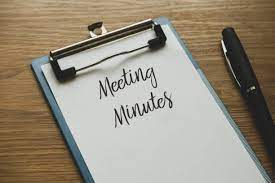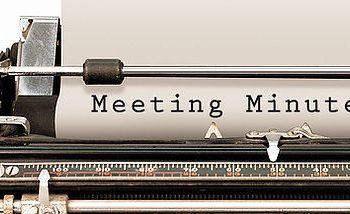 January 2024
January 2024
Owners that want to be more engaged, aware of what their condo board is doing, and understand how they go about resolving problems want to know what happens in condo board meetings.

They rely on the accuracy of minutes from board meetings to understand what decisions are being made.
Meeting minutes will be scrutinized and analyzed. The more accurate, precise and clear they are, the fewer problems exist. This should be a simple task for those recognizing that minutes are not a verbatim account of each meeting. They exist as a record of what decisions are being made, when, and the financial implications of these decisions.
Include necessary details
All minutes should include the time and date of the meeting and location. Topics in the minutes should conform to the agenda. Avoid casual conversations, disagreements, hearsay and accusations. Recording of votes is important so attendance, including guests or invitees, should be included.
Be professional and clear
Minutes should be written in third person. Use wording such as “the board” rather and “I” or “we.” Meeting minutes will be used by many people on many occasions. Lack of clarity makes it hard to prove decisions were made in a proper and legal manner.
Do not include restricted information
Discussions that include actual or contemplated litigation, specific units, staff, and other private items should be in a restricted records section of the minutes. Some call these “In Camera” minutes. When minutes are requested by owners, this information is not provided unless it pertains to that specific owner.
 Most owners are unaware that meeting minutes are not intended to communicate information to owners. In fact, much of what owners want to know does not appear in meeting minutes. For this, they need to rely on newsletters and other communications.
Most owners are unaware that meeting minutes are not intended to communicate information to owners. In fact, much of what owners want to know does not appear in meeting minutes. For this, they need to rely on newsletters and other communications.






